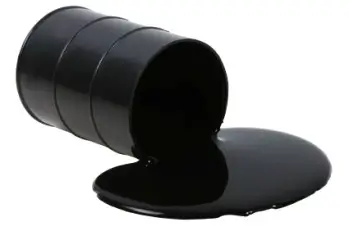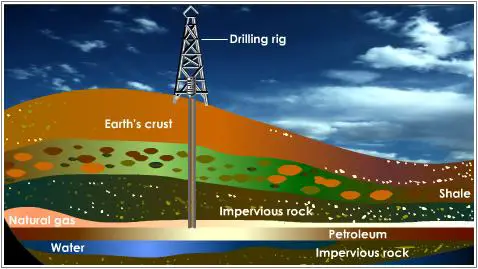Within a few decades, oil has become one of the cornerstones of modern economic life. The advantages and disadvantages of petroleum is described briefly below.
Advantages of petroleum
In nature, oil accumulates in porous rocks crossed by some veins called rock-collecting or rock huts. These are sandstones, sands, limestone, dolomite, and other. Usually, in huts oil rocks are found in association with natural gas. Genesis oil is not definitively established. There are two theories: organic and inorganic.

The biogenic theory of oil formation argues that oil is formed from marine organisms (plankton) that after death were deposited on the seabed sediments are covered later. According to this theory, oil training period covers a period of approx. 350-400000000 years. The major advantages of petroleum are listed below. You might also be interested in geothermal energy pros and cons here.
- Oil has a very high energy density: average 1 kg of burnt oil gives about 10,000 kcal (40MJ).
- Technologies for extracting oil from the ground are very well developed and can be exploited deposits in different geological conditions (at great depths of the continental shelf seas and oceans in climate special conditions).
- Oil extraction is relatively low cost and with a much reduced physical effort and technical (like the extraction of coal, for example).
- Due to its liquid form, it is easy to transport, vehicle and stored, its management is relatively easy.
- It has broad areas of application, from the chemical, transport and finishing with its use as an energy resource in power plants.
- It is used as gasoline or diesel fuel to power motors of all kinds (cars, buses, trucks), so it satisfies people’s need to move quickly from one place to another.

Disadvantages of Petroleum
In crude oil (unrefined) contains over 17,000 complex organic substances, which is why the most important raw material for the chemical industry (paints, fertilizers, food, medicines, plastics, and others) and fuel production.
In fact, all modern industry depends on petroleum and its products, material structure and way of life in the communities surrounding suburbs of the big cities are the result of wide petrol. Some important disadvantages of petroleum are as follows.
- It is a limited resource; we are almost half of the oil reserves of conventional sources in the world, about two trillion barrels. There are about one trillion barrels left, which is more – except that burn 32 billion barrels per year, which means that – at this rate – it will run at approx decades. There are lots of unconventional oil sources such as tar sands in Alberta, but they produce only 1 million of the 86 million barrels that one million burn every day so while it may make some people very rich, is too insignificant to make a difference.
- By extracting and processing, worrying contributes to environmental pollution, especially in summer.
- A non-renewable resource, which means that once consumed a quantity, it cannot be replaced. In the long term, this leads to the depletion of these fuels.
In conclusion, we should find another energy source as the petroleum reserves are enough only for 30-40 years from now on.

